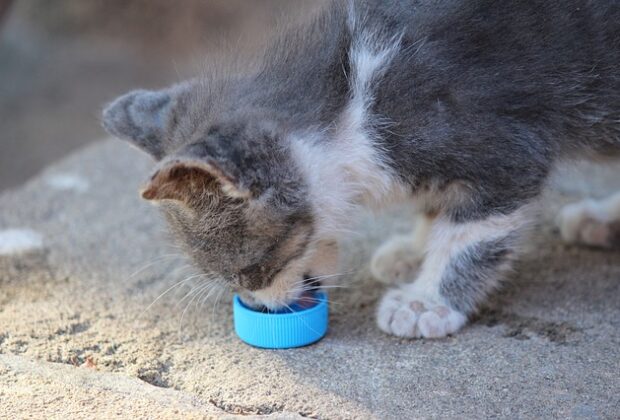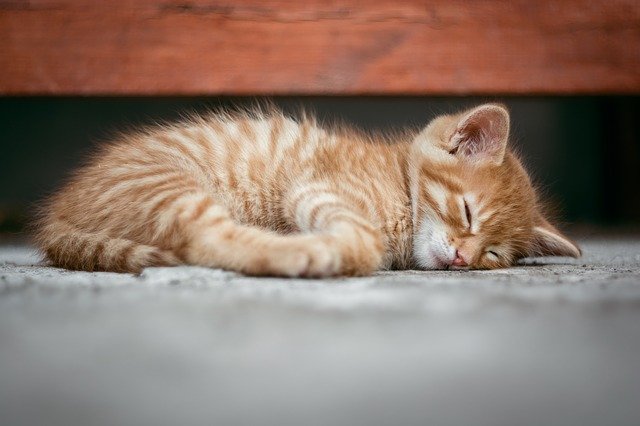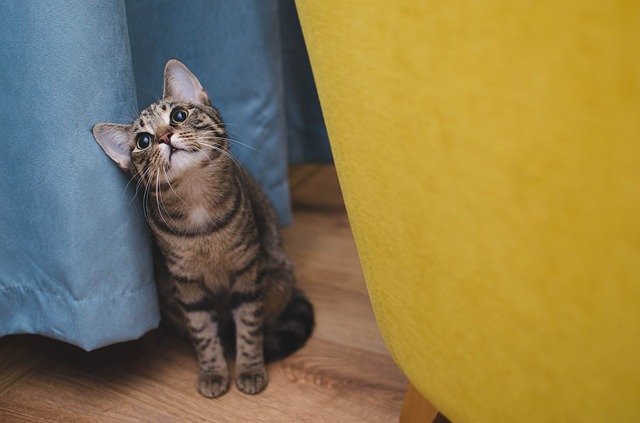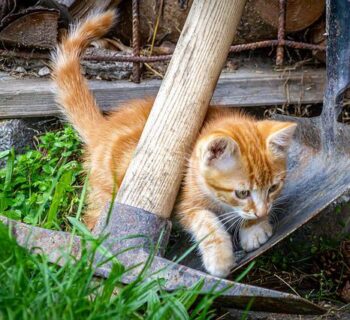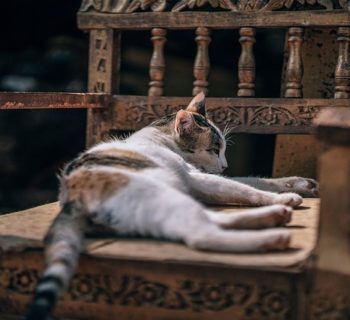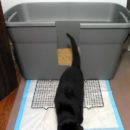Like other mammals, young felines eventually switch to solid food from the mother's milk. At this stage, the milk is not as filling as before, and the growing cats need a heavier replacement for their energy and all-round growth. But when does this happen? When can kittens eat solid food? We'll find out in this article. Here, we will discuss beginning the weaning process, introducing a kitten to solid food, and other details new cat owners will find helpful.
Table of Contents
Weaning Your Kitten
Like with many mammals, weaning the young feline is a significant milestone in their life. During the weaning process, the feline transitions from the mother cat's milk to solid food. At this point also, the kitten moves from being entirely dependent on their mother to become more independent in many areas, including their social life.
With most kittens, the weaning process usually happens around their 4th to 5th week of life and may take up to three weeks to complete. However, with orphaned or abandoned kittens or kittens with sick mothers, weaning may begin as early as two weeks for bottle-feeding to take the place of the mother's milk.
How Do I Start Weaning My Kitten?
While there is a time range for weaning, you still have to keep in mind that the sudden removal of your kitten from its mother can affect the kitten's health, social life, and other vital life skills they could have gained from their mother. And this could eventually mean more training commitments for you, and litter-training a kitten, for example, isn't the most straightforward task there is.
Unless avoidable, you want your kittens with their mother for as long as possible, even during the weaning process.
That being said, as the kittens reach their 4th or 5th week of life, you can begin the weaning by placing them in separate areas for a couple of hours at a time. Done repeatedly, this step helps to reduce their dependence on their mother's milk and presence.
When separated, provide them with food, water, litter box, and toys. As they grow more independent, you can increase the hours.
Before You Wean Your Kitten
While it is not always possible, you want to ensure that your kitten gets at least some quantity of the mother's milk within the first 24 to 48hrs of its life. This is because this first milk, known as colostrum, is packed with antibodies that are needed by the young feline at this point. Even if the mother cat has plenty of kittens and cannot produce an adequate amount for each of them, they all get some amount of the colostrum; it is always better than nothing.
Suppose the above is not possible due to certain health conditions, abandonment, or mortality, you can have the kittens go to another nursing mother, especially if they are around the size of her current kitten litter. You can place the kittens on milk replacement formula using a syringe or nursing bottles in the absence of a nursing cat.
Bottle-Feeding An Orphaned Kitten
The bottle-feeding phase should last about three to four weeks. When bottle-feeding, ensure that the bottle is warmed in a water bowl and test to confirm the temperature before feeding the young cat.
Feed slowly but regularly; every 2 or 3 hours during the day is recommended. At night, let them sleep. Young felines will wake you up at night if hungry.
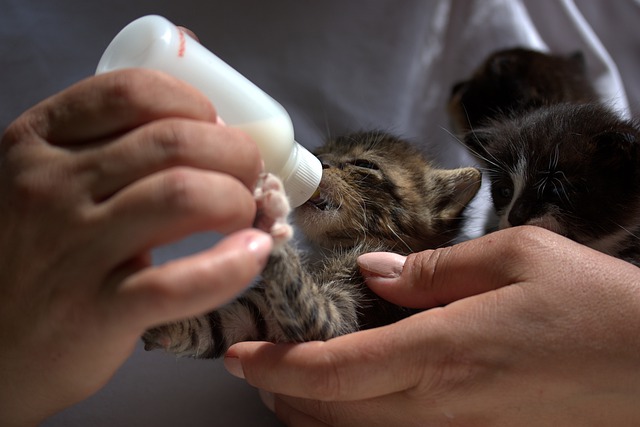
How to Wean Your Kittens
To wean your kitten, start by mixing some solid kitten food with formula. You want your kittens to recognize the familiar taste and not reject the new food. Then, place some of it around their mouth with your finger and offer it to them to lick it off. Do this regularly during the weaning phase, and soon enough, they will start seeking it out elsewhere. At this point, you can offer them some quantity of the food in a bowl to lap from.
You want to make sure that they are supervised at every meal at the onset. This is so that they do not lap too fast or push their face into the food bowl. They may inhale the mixture and develop pneumonia or choke on the food if this happens.
If you have plans to feed your kitten dried food, introduce this around the 5th and 6th week and supplement with formula if possible. When providing dry food, add lots of water to the food, and as the kitten matures, reduce the quantity.
Helpful Kitten Weaning Tips
Here, you'll find other kitten-weaning tips that may be helpful when weaning your kittens. You can share other beneficial tips you know in the comment section below.
- Unless orphaned, you should never separate kittens permanently from their mother until they are at least four to six weeks old. As mentioned earlier, kittens still have so much to learn at this stage. The mother is almost always the best to teach these valuable skills, e.g., feeding, using the litter box correctly, and socializing with the other kittens.
- Don't try to force the weaning process. While you can separate the kitten from its mother for some hours to help them prepare for the eventual separation, you do not want to begin the process forcefully. Weaning comes naturally to all healthy felines, and you can trust your kitten's mother to know when and how to wean her litter correctly.
- Picking the right food for your kitten is essential for successful weaning. The right kind of food is specifically formulated for kittens and usually contains a substantial amount of protein, calories, and calcium required by the young feline at this stage.
- Keep the kitten warm. At this stage, the young felines have to be kept warm. You can do this by creating a nest or a comfortable bed with old beddings and towels. You can even use a pet carrier with the same comfortable beddings, and old towels split into small pieces. The splitting is so you can easily discard and replace it for easier clean-up when they get messy. You can also provide additional warmth by placing a hot water bottle or a heating pad under the towel. Young kittens and their mother need and should get all the heat possible, especially in cold weather or environment.
- Don't rush the process. Unless the mother cat cannot continue, you should not try to hasten the process. With most cats, the weaning process takes between four and six weeks, and many kittens are weaned and considerably independent by their eighth or tenth week. For some, it takes longer.
- Healthy cat mothers can be affected by the sudden separation from their kittens if done too early. Not only does it affect her health, but her social life also suffers. She is naturally inclined to teach them and, in their absence, will be left with nothing to do. Let the weaning happen naturally, not just for the kittens but also for the mother cat.
Weaning the Orphaned Kitten
Weaning an orphaned cat can be challenging, but it is possible. However, avoid starting the process too early/before it can open its eyes/focus and stand firm on its feet. Until this happens, continue with the bottle feeding and formula.
When a mother cat naturally weans her kittens
The natural weaning process, as said before, begins around the fourth week. During this period, the young kittens will try to eat their mother's food whenever fed. You may notice the mom trying to push them away. They soon grow less dependent on their mothers' milk and start mainly eating food provided for them in their eating bowls.
For orphaned cats, you can tell they are ready for weaning when they start chewing and biting on their feeding bottle. At this stage, you can safely introduce solid kitten food.
When Can Kittens Eat Solid Food? Conclusion
The switch from milk/formula to solid food may not seem like the most straightforward task, but it really isn't very challenging. This is especially true when you allow the weaning process to occur naturally when possible.
Be patient with the kittens when they first start on solid food. Expect them to play with their food, explore it with their paws, and even try to get into the food bowl. When this happens, clean up the kittens and the area as soon as possible with a wet cloth and gently steer them in the right direction with gentle commands and also reduce the meal quantity if needed.
Avoid overfeeding your kittens. While you want them adequately fed, remove unfinished meals to prevent random eating/overeating that could easily lead to obesity. Finally, provide them with a constant supply of clean water. Growing cats are often very active and therefore need to stay well-fed and hydrated.
About the Author
Kirsten Heggarty
Kirsten created The Pet Handbook with the aim of sharing her knowledge about pets, pet food, healthy habits, and more. All of her advice is based on years of her own experience with her pets, and feedback that she has received from grateful readers about her tips. If you want to know more please read the About Me page.

